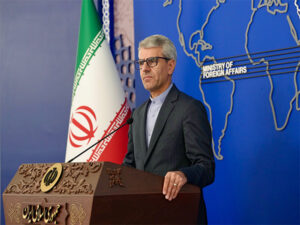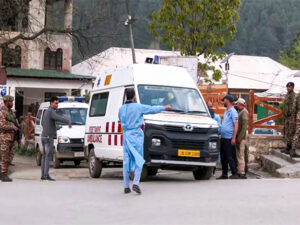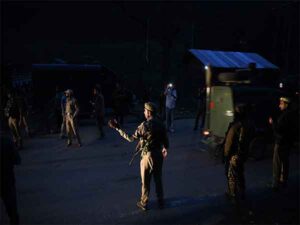Coal procurement scandal casts Pakistan in dim light
Islamabad [Pakistan], May 13 (ANI): Questions have arisen regarding the importation of coal for power plants amidst concerns over the affordability of power supplies, which are impacting demand and driving consumers away from the national grid. Despite the overarching policy direction from both the government and the International Monetary Fund (IMF) favouring localisation and import substitution, the procurement of imported coal for power plants in the long term has come under scrutiny, Dawn reported.
Power plants are increasingly turning to long-term coal imports, taking advantage of a market with ample liquidity and availability. This shift came after the National Electric Power Regulatory Authority (NEPRA) streamlined spot imports through procurement guidelines, leading to a significant drop in coal prices.
Former caretaker power minister Muhammad Ali, sensing irregularities, initiated an investigation into coal purchases for the Sahiwal Coal Power Project. However, the investigation seems to have been put on hold despite recommendations for a prompt report.
CEO of the Central Power Purchasing Agency (CPPA), Rehan Akhtar brushed off inquiries about coal purchases during a public hearing, likening such questions to discouragement of oil and gas exploration. He urged that any evidence of wrongdoing should be provided to NEPRA for review. NEPRA, on its part, declined to comment on the issue, although it confirmed receipt of the former minister’s inquiry letter.
Interestingly, NEPRA ‘s regulatory authority over coal procurement is limited to issuing guidelines and relying on invoices from the CPPA for tariff calculations, as reported by Dawn.
Records from NEPRA indicate that the Sahiwal power project was procuring coal at a significantly higher price compared to other industries like cement and textiles during the same period. This price disparity raised concerns over-inflated costs and potential financial burdens on consumers.
The Sahiwal project’s monthly coal requirement is substantial, and the inflated prices could translate to significant costs for consumers if similar practices were adopted by other power plants.
NEPRA’s introduction of guidelines for spot coal procurement led to a reduction in the cost of power generation at the Sahiwal project. However, multiple suppliers complained of facing obstacles from the power project, resulting in losses and discouragement for new participants.
The preferential treatment given to historical suppliers, including offering them the option to match the lowest bid and granting them priority in supply contracts, raised further questions about fairness and transparency in the procurement process.
In December 2023, the power producer entered into a long-term coal supply contract, seemingly favouring the historical supplier. The timing and details of this contract raised suspicions of pre-arranged agreements and weak oversight by both the government and the regulator.
The absence of updated guidelines from NEPRA for long-term procurement allowed the historical supplier to continue supplying coal without facing competition, further highlighting concerns about the lack of a competitive market.
These developments coincide with ongoing concerns from multilateral organisations regarding inefficient procurement practices, opaque tender procedures, and lack of competition, all of which contribute to higher energy prices and mounting circular debt.
There are indications that similar procurement processes may be underway in other power projects, potentially solidifying the exception as the norm in the market, Dawn reported.






